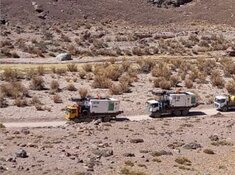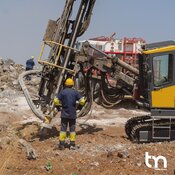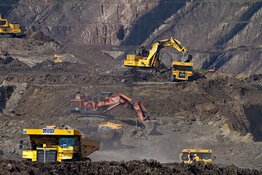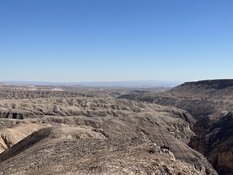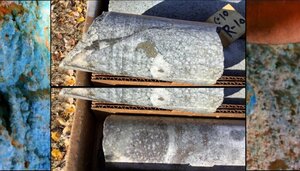Stillwater Critical Minerals Corp. (PGE:TSX.V; PGEZF:OTCQB; J0G:FSE) has signed a non-binding Memorandum of Understanding (MOU) with US Strategic Metals (USSM) to explore collaboration in critical minerals development. This MOU outlines possible areas of cooperation, including marketing and lobbying efforts focused on key U.S. agencies, such as the Department of Energy and the Department of Defense, from which SWCM has been actively pursuing grants and other federal funding. The companies may work together on metallurgical and mineral processing technology, supply chain establishment, and logistical support. Additionally, this agreement considers the potential for strategic financing via equity or debt investments.
Stillwater's President and CEO, Michael Rowley, emphasized the strategic importance of Stillwater West in the company news release. "We are pleased to be aligning with another high-quality partner like USSM to advance this project," said Rowley. He further highlighted the companies’ mutual connection with Glencore and noted, "We expect this collaboration will further advance our mutual relationships with OEMs, vehicle/battery manufacturers, major mining companies and, perhaps most importantly in the near term, federal government agencies and legislators providing funding opportunities."
USSM's CEO Stacy Hastie expressed that Stillwater West fits well with USSM's mission to secure a domestic critical minerals supply chain. Hastie explained in the press release, "Stillwater West is clearly one of the most important potential future sources of at least eight critical minerals, and its development is perfectly in line with the U.S. government's mandate on securing domestic supply of these materials as well as USSM's internal expansion mandates."
Looking Into Critical Minerals
Cobalt is a critical mineral that has become increasingly valuable as the demand for electric vehicles (EVs) rises. According to Investing News Network on September 17, cobalt's essential role in "lithium-ion battery cathodes" remains a driving force behind its increased relevance. The report explains how, with the shift toward electrification, cobalt serves as a primary component in the battery sector.
Even with some fluctuations in its market price, Investing News Network stated that cobalt's role in "EV batteries underscores its long-term demand as global electrification efforts progress." Furthermore, cobalt is primarily produced as a by-product in nickel and copper mines, a unique factor that adds to its value by supporting diversified mining operations.
Given cobalt's strategic importance, the United States has recently moved to secure and strengthen its critical mineral supply chain with significant investments in North American refining capabilities. In August, The Guardian reported that the Pentagon awarded a US$20 million grant to support the construction of North America's first cobalt sulfate refinery in Ontario. The hope is to reduce dependency on China's dominant cobalt market share.
According to The Guardian, this investment is part of a broader U.S. initiative to foster a resilient and diversified supply chain capable of supporting demand from both the "defense and commercial sectors." With an additional CA$3.6 million in support from the Canadian government, the refinery will aim to provide North American industries with a stable supply of battery-grade cobalt sulfate.
Nickel, another essential component in the battery industry, has similarly demonstrated importance in the production of electric vehicles. On October 3, Steelnews reported that nickel prices on the London Metal Exchange (LME) rose to over US$18,200. This marks a three-month high and underscores the growing demand for this resource. Steelnews attributed the price rise in part to China's recently announced economic stimulus program, which has driven up the prices of essential materials, including nickel. Additionally, global efforts toward environmental sustainability are also shaping the nickel sector. The Indonesian government, for example, has recently prioritized sustainable practices in nickel mining to align with global demand for responsibly sourced raw materials. This initiative, as Steelnews observed, reflects a broader shift in the nickel sector as leading producers seek to address raw material availability while implementing sustainability measures.
As part of the ongoing strategic dialogue on critical minerals, Hindustan Times reported on October 5 that both India and the United States have emphasized nickel within their collaborative efforts to build resilient supply chains. In a recent memorandum of understanding (MOU) between the two countries, officials outlined the importance of "modern technology" in supporting critical mineral partnerships and reducing dependency on other major producers. This MOU is expected to provide a framework for collaboration that will advance commercial development in critical minerals, including nickel, which the Hindustan Times highlighted as essential for clean energy and technological applications.
Stillwater's Critical Catalysts
The agreement today provides a strong foundation for several potential growth catalysts, as highlighted in Stillwater's recent investor presentation. With both federal backing and growing ties with major manufacturers, this MOU could bolster Stillwater's government funding opportunities and align the project with national interests in domestic resource supply.
 Streetwise Ownership Overview*
Streetwise Ownership Overview*
Stillwater Critical Minerals Corp. (PGE:TSX.V; PGEZF:OTCQB; J0G:FSE)
Joint initiatives in processing and metallurgical development may streamline project timelines and lead to cost efficiencies across critical mineral projects. Additionally, with possible financial backing, the collaboration might expedite project funding through additional capital streams from equity, debt, or government sources.
Ownership and Share Structure
Management and insiders own approximately 20% of Stillwater, according to the company.
Executive Chairman and Director Gregory Shawn Johnson owns 2.86%, President and CEO Michael Victor Rowley owns 2.56%, Independent Director Gregor John Hamilton owns 1.65%, Independent Director Gordon L. Toll owns 0.44%, and Vice President of Exploration Daniel F. Grobler owns 0.23%, according to Reuters.
Institutions own approximately 25% of the company, high net-worth investors own about 37%, and Glencore Canada Corp. owns 15.4%. About 18% of the company's shares are in retail, Stillwater said.
There are about 227 million shares outstanding with 174.5 million free float traded shares, while the company has a market cap of CA$36.33 million and trades in a 52-week range of CA0.1000 - CA0.2200.
| Want to be the first to know about interesting Critical Metals investment ideas? Sign up to receive the FREE Streetwise Reports' newsletter. | Subscribe |
Important Disclosures:
- Stillwater Critical Minerals is a billboard sponsor of Streetwise Reports and pays SWR a monthly sponsorship fee between US$4,000 and US$5,000.
- James Guttman wrote this article for Streetwise Reports LLC and provides services to Streetwise Reports as an employee. \
- This article does not constitute investment advice and is not a solicitation for any investment. Streetwise Reports does not render general or specific investment advice and the information on Streetwise Reports should not be considered a recommendation to buy or sell any security. Each reader is encouraged to consult with his or her personal financial adviser and perform their own comprehensive investment research. By opening this page, each reader accepts and agrees to Streetwise Reports' terms of use and full legal disclaimer. Streetwise Reports does not endorse or recommend the business, products, services or securities of any company.
For additional disclosures, please click here.

